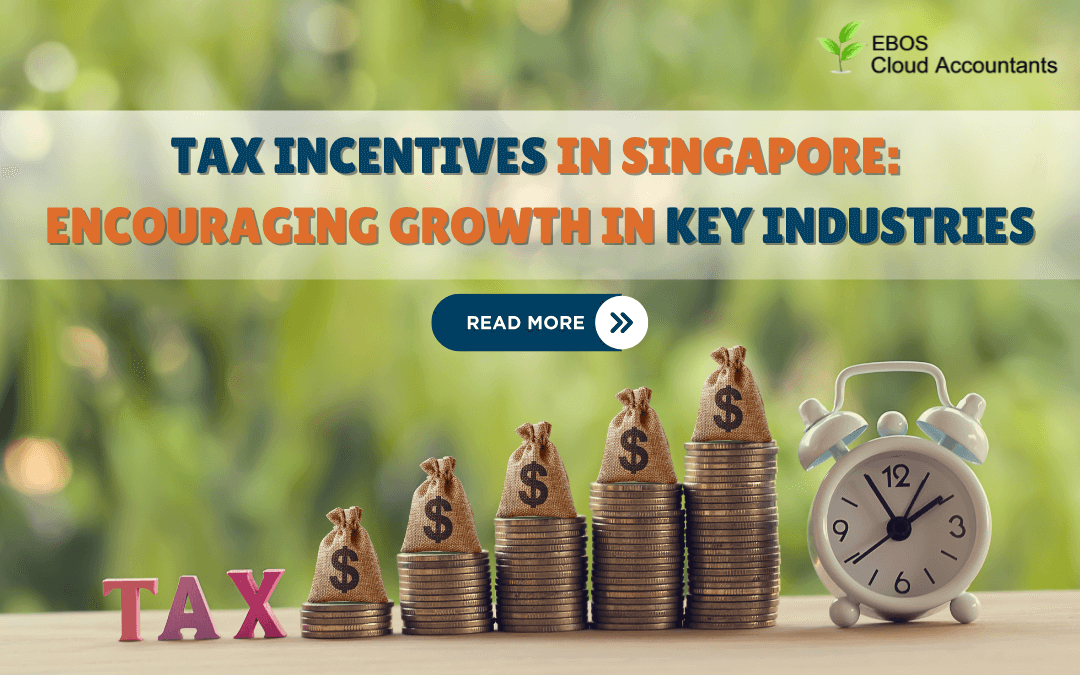Due in large part to its business-friendly atmosphere and advantageous tax system, Singapore has long been regarded as one of the most alluring locations for investors and companies globally. The nation’s tax incentives are essential for promoting innovation and growth, especially in important industries. Singapore seeks to create a strong ecosystem that stimulates economic growth, draws in foreign investment, and improves global competitiveness by systematically reducing tax burdens and providing tailored incentives.
In this article, we’ll explore some of the key tax incentives in Singapore, focusing on how they support the development of targeted industries.
1. Pioneer Incentive Scheme (Pioneer Certificate and Development and Expansion Incentive)
One of Singapore’s most well-known tax breaks is the Pioneer Incentive Scheme. It is especially intended for businesses engaged in sectors or endeavors that make a substantial contribution to Singapore’s industrial development and economic expansion. Businesses that meet the requirements to be considered “pioneer companies” are free from paying taxes on qualified profits for a maximum of 15 years under this program. A wide range of businesses, including engineering, technology, manufacturing, and more, are eligible for this incentive.
The Development and Expansion Incentive (DEI) is also available for companies already operating in Singapore and looking to expand or upgrade their operations. It provides a concessionary tax rate of 5% or 10% on incremental income, with the goal of encouraging companies to reinvest in growth within the country.
2. Financial Sector Incentive (FSI)
Singapore has established itself as a global financial hub, and the Financial Sector Incentive (FSI) scheme plays a pivotal role in this achievement. The FSI offers a reduced corporate tax rate of 5%, 10%, or 13.5% on qualifying income, depending on the specific financial activities undertaken. The types of activities supported under the FSI include:
- Banking and financial advisory services
- Insurance and reinsurance
- Asset and wealth management
- Capital market services
This scheme aims to deepen Singapore’s capabilities in financial services, attract new players, and encourage existing players to expand their offerings.
3. Global Trader Programme (GTP)
The Global Trader Programme (GTP) is designed to encourage Singapore as a preferred base for global trading activities. Under this incentive, qualifying companies can enjoy a concessionary tax rate of 5% or 10% on qualifying trading income, which includes income derived from physical trading, brokering of physical commodities, and derivative trades.
The GTP is particularly relevant for sectors such as commodities trading, oil and gas, and agriculture, with the aim of strengthening Singapore’s position as a major trading hub. This incentive is further supported by the country’s strategic location, excellent infrastructure, and connectivity to key global markets.
4. Intellectual Property Development Incentive (IDI)
Companies that actively develop, produce, and market intellectual property (IP) in Singapore are the target of the Intellectual Property Development Incentive (IDI). The IDI provides a 5% or 10% concessional tax rate on income from eligible IP operations in order to encourage IP development. Patents, trademarks, and other intellectual property developed or produced in Singapore may fall under this category.
Given the country’s focus on innovation, this incentive is crucial for high-tech industries such as biotech, pharmaceuticals, software development, and advanced manufacturing. The IDI encourages companies to conduct R&D locally, helping to transform Singapore into a knowledge-driven economy.
5. Research and Development (R&D) Tax Incentives
Singapore offers a range of R&D tax incentives to encourage companies to invest in innovation and development activities. Companies can benefit from tax deductions or allowances on qualifying R&D expenditures, which can amount to up to 250% of the expenses incurred.
- R&D Tax Deduction: Qualifying R&D projects allow companies to claim a 250% tax deduction on staff costs and consumables incurred in R&D conducted in Singapore.
- Enhanced R&D Deduction: For specific projects that benefit Singapore’s economy, an enhanced deduction rate of up to 300% may apply.
These incentives are particularly advantageous for industries focused on tech-driven growth, including biotechnology, artificial intelligence, robotics, and clean energy, which are key drivers of Singapore’s future economy.
6. Start-Up Tax Exemption Scheme (SUTE)
The Start-Up Tax Exemption Scheme (SUTE), which exempts the first S$200,000 of a start-up’s chargeable income for the first three years, was implemented in Singapore to promote entrepreneurship and the founding of new companies. In the crucial early years, this incentive enables start-ups to reinvest revenues into expanding their operations, which is especially advantageous for developing sectors like banking, digital media, and e-commerce.
7. Industry-Specific Incentives: Maritime, Biomedical, and Logistics
In addition to broader tax incentives, Singapore also offers industry-specific incentives tailored to sectors that are strategically important to its economy. These include:
- Maritime Sector Incentive (MSI): To promote Singapore as a premier international maritime center, companies engaged in international shipping, maritime leasing, and other maritime activities can qualify for reduced tax rates or full tax exemptions on qualifying income.
- Biomedical Sciences Initiative: This includes tax incentives and grants for companies involved in pharmaceuticals, biotechnology, and medical technology, supporting R&D activities and the commercialization of biomedical solutions.
- Logistics and Supply Chain: Companies in the logistics industry benefit from incentives aimed at enhancing Singapore’s status as a global logistics hub. These include tax exemptions on qualifying logistics income and financial support for capacity building.
Conclusion: A Pro-Growth Tax Environment
A thriving, diverse economy is largely a result of Singapore’s tax benefits. By focusing on particular sectors and promoting important initiatives like R&D, IP development, and international trade, Singapore has made a name for itself as a competitive, progressive economy. In addition to reducing tax obligations, these advantages give companies the help they need to develop, expand, and thrive in global markets.
Singapore’s aggressive tax benefits and dedication to economic progress make it a desirable destination for businesses seeking to grow and prosper in a world that is becoming more and more competitive. To maximize development potential and contribute to one of Asia’s most dynamic economies, investors and enterprises thinking about relocating to Singapore must comprehend and take advantage of these incentives.
Check out our website at https://ebos-sg.com/ to explore more articles and discover how our Cloud Accountant Services can support you on your business.







